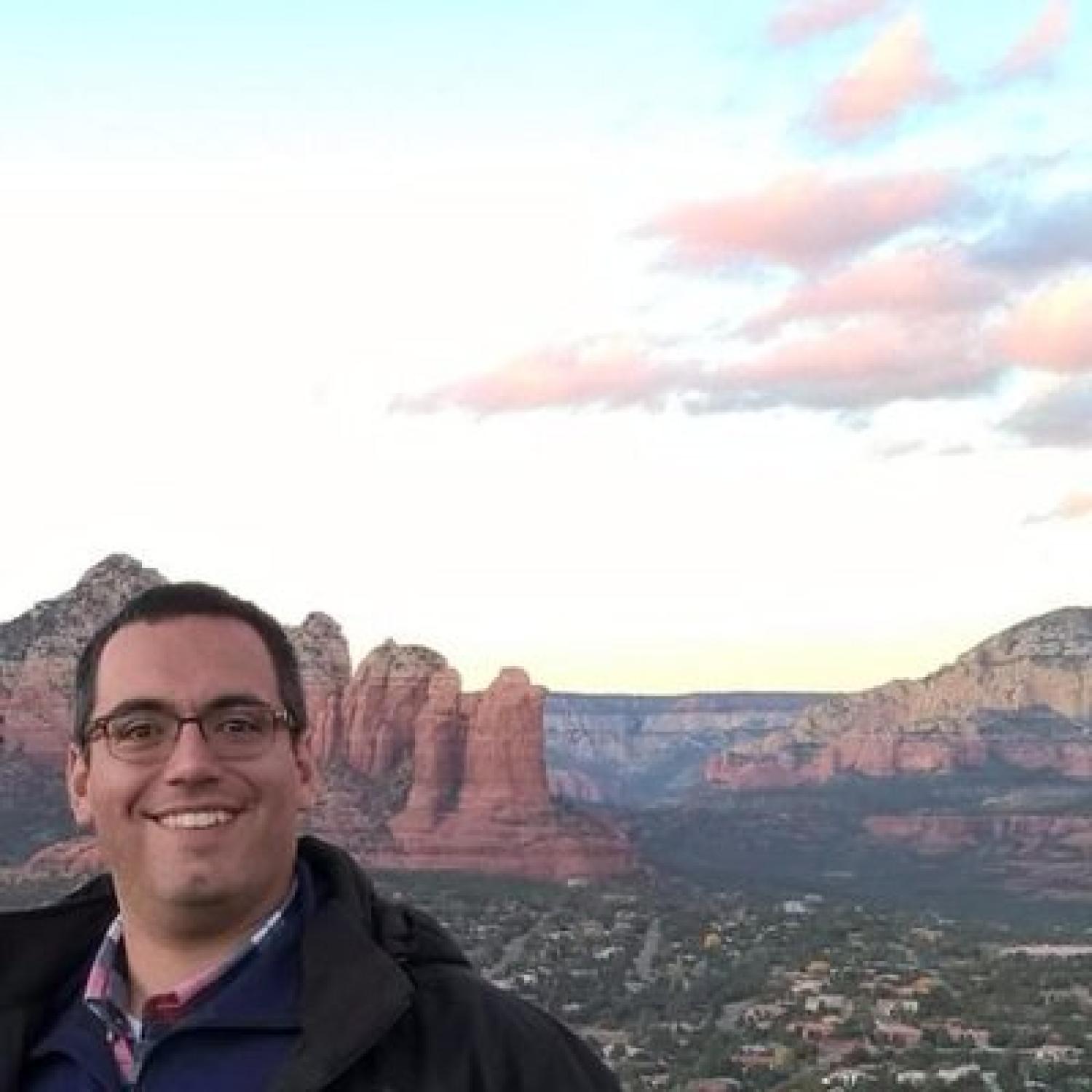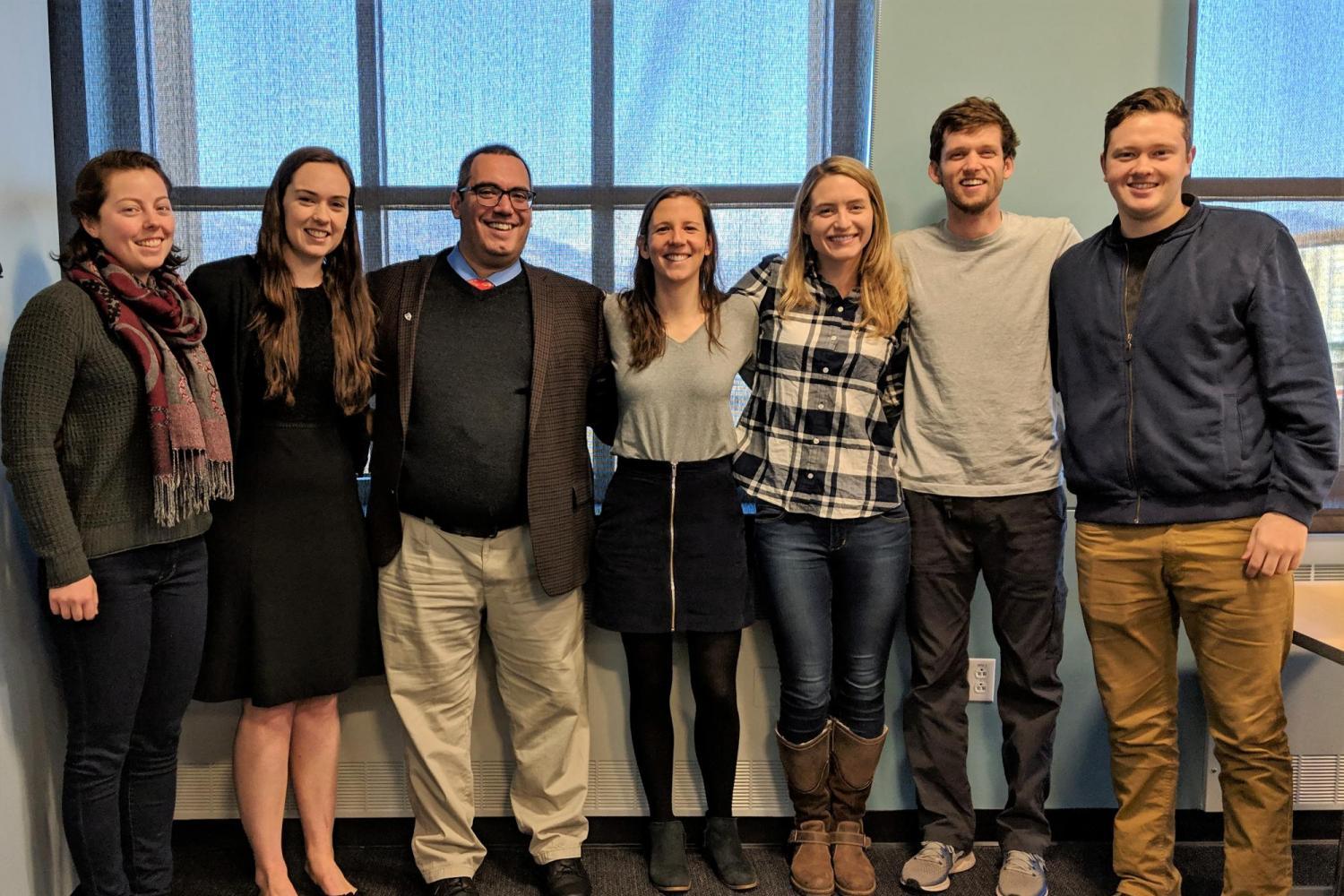Professor Joseph Kasprzyk Interview
As a professor, I integrate technical expertise with creativity and a desire to help society through innovative civil engineering.

Assistant Professor
HYDROLOGY, WATER RESOURCES & ENVIRONMENTAL FLUID MECHANICS • CIVIL SYSTEMS • ENVIRONMENTAL ENGINEERING
joseph.kasprzyk@colorado.edu
Website
I was born in Pennsylvania and studied for my undergraduate and graduate degrees at Penn State University, joining the CU CEAE department as an assistant professor in Fall 2013. Many of my research projects that partner with water utilities and stakeholders. I am affiliated with the Environmental Water Resources Institute (EWRI) of ASCE. I have had several service positions with EWRI, including a committee that investigated best practices of water resources systems education across the country and leading the Environmental Water Resources Systems committee for the last four years. In my free time, I enjoy playing and recording music, hiking, and cooking.
What classes do you teach?
I teach an undergraduate course on Engineering Hydrology (CVEN 4333). My graduate course offerings include Water Resources Engineering (CVEN 5423) that covers a broad array of topics including stormwater management, design of open channels, and use of computer tools in water resources engineering; and Water Resources Systems Analysis (CVEN 5393) that covers how optimization and simulation models are used to promote multi-objective management of multiple reservoir systems and other water resources planning projects.
What is your teaching philosophy? How does it differ from traditional engineering education?
In traditional water resources engineering practice, engineers would often use historical conditions as a way to judge how future projects would perform. Environmental change and the emerging global scale of engineering offer new challenges that the next generation of engineers will face. How can we design systems that must meet a “moving target” caused by climate change, urbanization, and shifting socioeconomic conditions? I try to teach students to be critical of tried-and-true engineering methods, and to incorporate the latest research into their understanding of how to design and evaluate water resources systems.
Could you explain what your research is focused on? What inspired you to pursue this research?
When deciding to study civil engineering in college initially, I was always drawn to the close impact that civil engineers have on people’s day to day lives – providing clean drinking water, transportation, and safety. As I continued in school, I gained an appreciation for the intersection of public policy and regulation on these systems, and also in how new computational tools could transform age-old problems and provide innovative solutions. To this end, my research group seeks to transform the management of environmental systems by advancing techniques for multiple objective decision making, using multi-objective evolutionary algorithms (MOEAs), simulation modeling, interactive visualizations, and high performance computing. We work in three themes: (i) advances in water resources planning and management, (ii) decision support for environmental systems such as pollution remediation, and (iii) methodological frameworks for decision making under uncertainty.
What are the impacts of droughts, climate change, and extreme weather events on drinking water? Why is it important we understand these relationships?
It’s an interesting story how my research group began to pursue this question. My work prior to coming to CU was often focused on the provision of a certain quantity of water, but not closely trying to protect water quality. My great colleagues in CEAE, though, wanted to collaborate on a broader project that was eventually funded as a partnership between the Water Research Foundation and the Environmental Protection Agency on trying to look at the impact of extreme events on drinking water quality. We wrote a review paper on this topic, led by my student Billy Raseman. The basic idea is that extreme events degrade the source water quality for drinking water treatment plants, and there are many cases where the drinking water treatment plants are not prepared to treat the water with degraded water quality. In the overall project, the investigators use detailed simulations of water treatment plants, statistical models of plant behavior, and experimental work to identify better management strategies in the face of degraded water quality.

Recently, my group has been pleased with the facilities at the Sustainability, Energy, and Environment Community building, where the students have desks located next to one another and in close proximity to mine. Having such a collaborative space has also helped them collaborate with one another both formally and informally. Mikaela DeRousseau, who is a PhD student working on my sustainable materials project with Prof. Wil Srubar, often jokes that she is an honorary “water student” for this reason! Working with Profs. Ben Livneh, Rajagopalan Balaji, and Edith Zagona, we have a graduate student meeting every week where students get together and share their research work, professional development advice, as well as get to know one another. This is a great way to promote a sense of community, since even across diverse problems students are using similar computational techniques.
You play bass in a bluegrass and gypsy jazz band; how do you find a balance between work and recreation time? What is your advice to students trying to balance engineering and other hobbies?
I play bass and sing in the group Paper Moonshine, along with my CEAE colleague Ben Livneh and another university educator who works in the International English Center at CU. I think it’s important to have interests outside of work, especially since the mind can work on problems subconsciously while you are giving yourself a break. I’ve played music all my life, and I actually think that playing music in front of people is one of the best ways to get over “stage fright” of doing other public speaking such as giving speeches and being in the classroom. One of my activities in the band is actually working on making recordings, which actually helps me become more adept at different types of software and technology that can bleed over into my engineering work. Students should definitely blend engineering with their other hobbies because you never know when something you learn outside of the classroom can help you do your job! And you’ll have some fun along the way too.
December 27th, 2018


